| |
|
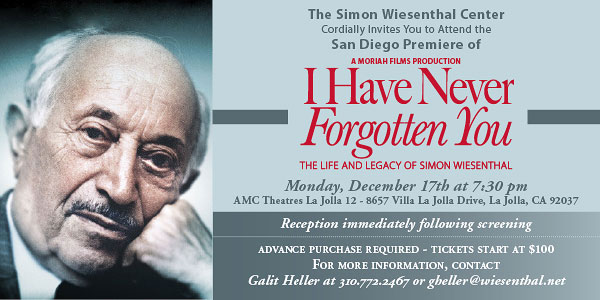
LETTER FROM JERUSALEM
Shock and disbelief in Israel over U.S. latest estimate on Iran's nuclear program
By Ira Sharkansky
 JERUSALEM—Is Iran pursuing the development of nuclear weapons or not? JERUSALEM—Is Iran pursuing the development of nuclear weapons or not?
Someone outside of the Iranian loop is not likely to find a clear answer .
Israeli officials are close to wetting their pants due to the change in United States intelligence estimates. Now it looks like the United
Ira Sharkansky
States will not be attacking Iranian nuclear sites, and may not even be able to obtain any multi-national agreement to increase the weight of sanctions.
Mohammad Al Baradei, the director general of the International Atomic Energy Agency, is crowing that "we told you so," and has reaffirmed Iran's certificate of kashrut.
One suspects that more than a few Europeans, as well as Russians and Chinese, are happy to see a bit of egg on George W. Bush's face. The president who invaded Iraq on the basis of flawed intelligence is left with a sea change in his own intelligence on Iran. Reports are that the intelligence on Iraq was not simply flawed, but the product of an Iraqi who successfully pursued a scam on American operatives. As a result, there are several portions of egg on the face of the unpopular president.
Controversy about these changes in estimates may be academic for Americans, Europeans and others who are not on Iran's publicly announced list for annihilation. If the Americans got it wrong in 2003, and/or 2007, it is not too important. They have survived nuclear weapons in the hands of the Soviet Union/Russia, China, North Korea, India, Pakistan, and almost Libya. They will find a way to live with nuclear weapons in Iranian hands, if or when it comes to that.
What about Israel? Iran's president, Mahmoud Ahmadinejad is noted for denying the Holocaust, saying that if it did occur European countries must provide room for Israelis, because it is necessary to wipe Israel off the map.
I do not know for sure that Israeli policymakers are wetting their pants, but several of them have expressed something in the range of dismay, frustration, and indecision on account of the latest American intelligence estimate. Jewish activists are more forceful. One item that found its way to my mailbox this morning, from an American who calls herself the Founder and President of the Israeli Project:
New press reports today about the recently released National Intelligence Estimate report on Iran lead readers and viewers to believe that the Islamic Republic has ended its nuclear weapons program. We know better.
"We know better" consigns this message to my fat file labeled "Jewish junk." It is the kind of mindless panic that feeds skepticism about the Israeli enterprise.
Which does not mean that there is no cause for Israeli concern.
Shimon Peres is more cogent, prestigious, and persuasive than the Founder and President of the Israeli Project. He comes to this issue as President of Israel, holder of a Nobel Peace Prize, and several decades of being to the left of the Israeli center, an optimistic, tireless and often tiring worker for peace. He is less than impressed with the latest American intelligence estimate. If it is true, he asks, then why has Iran invested so heavily in developing long range missiles that can carry nuclear warheads?
In this and other intelligence estimates, there is nothing approaching certainty. The latest American estimate has provoked a number of inquiries far more profound than "We know better." I do not think we will see an American attack on Iran during the coming days, or a heavier set of economic sanctions against Iran. We can expect further inquiries about this intelligence estimate.
- Question: What international pressure?
- Answer: The American invasion of Iraq in May 2003 followed by the interception through the Proliferation Security Initiative (PSI, the brainchild of John Bolton) of an illegal shipment of uranium-enrichment equipment bound for Libya in October. Iran's nuclear weapons program began in the early days of the Revolution and continued unabated through periods of relative freeze and thaw with the United States. The Iraq war and the PSI, however, certainly convinced Libya and may have convinced Iran that the United States had become serious about stopping proliferation.
- Implication: The NIE doesn't do implications, but we do. That might change the answer to the question, "Was the invasion of Iraq 'worth it'?"
Before the invasion, the UN was convinced - through intelligence estimates, including British inspectors' field reports - that Iraq had a hidden nuclear and chemical/biological weapons program. Even countries strongly opposed to the American invasion [mainly because they were making millions of dollars on the UN Oil for Food (read weapons) Program], agreed with the intelligence assessment that Saddam had non-conventional programs in defiance of UN demands for transparency.
Iran and Libya pursued their programs in the belief that UN inspection was a joke and American threats were bluster. Their intelligence missed the fact that in the post-9/11 atmosphere, the United States was unwilling to accept continuing uncertainty.
We have known since January 2004 the impact of U.S. policy on Libya. We may now understand the impact on Iran, making us wonder whether increased pressure at the time might have convinced the Iranians to show what the Libyans showed.



THE JEWISH CITIZEN
His remains sent from Poland to U.S. so he could be buried where Jews would visit
By Donald H. Harrison
 SAN DIEGO --Steve Greber, who helped found a chain of English language schools in Poland, where he led a Jewish life, was memorialized Tuesday, December 4, in a service conducted by Rabbi David Kornberg in the sanctuary of Congregation Beth Am. The beautiful and at times moving service was attended by many friends of Steve’s parents, Marilyn and Gerry Greber. A large contingent came from the North County Shores chapter of Women’s ORT chapter in which Marilyn is active. SAN DIEGO --Steve Greber, who helped found a chain of English language schools in Poland, where he led a Jewish life, was memorialized Tuesday, December 4, in a service conducted by Rabbi David Kornberg in the sanctuary of Congregation Beth Am. The beautiful and at times moving service was attended by many friends of Steve’s parents, Marilyn and Gerry Greber. A large contingent came from the North County Shores chapter of Women’s ORT chapter in which Marilyn is active.
Donald H. Harrison
Steve had died July 12 of a blot clot at age 51, but there had been various issues to be resolved prior to his ultimate inurnment yesterday at El Camino Cemetery. After Steve was cremated in Poland, his wife Ewa decided to have his remains sent to the United States where they could be lodged at a cemetery that other Jews would visit.
Nowy Wisnicz, the town where the Grebers were the only Jewish family, has a Jewish cemetery—but its gates are locked, and weeds grow over some of the graves. Before the Holocaust, an estimated 700 families had lived in the city, south of Krakow.
After Steve’s urn was buried in a grave, his parents rendezvoused with friends at Congregation Beth Am, where Rabbi Kornberg awaited them to conduct a memorial service. The rabbi had known Steve as a result of officiating three years ago at the formal conversion to Judaism of Steve’s and Ewa’s two children, Helena, now 15, and Daniel, now 7, during the family’s last visit to San Diego.
To prepare for their conversion, the children had been driven by their father every Sunday to the Kazimierz section of Krakow, where they studied at a school run by a Lubavitcher rabbi. Now, Ewa, a professor of Latin and Greek at Jagolovian University, continues to take the children to the Chabad school located in the same section of Krakow where Gerry’s own mother had lived prior to her immigration to the United States.
Gerry, a retired food chemist who now writes for San Diego Jewish World on a wide variety of subjects, especially the stories of Jewish veterans, delivered a eulogy for his son. It recalled Steve’s experiences in Little League baseball, on his high school football team, and as a volunteer in 1973 on an Israeli chicken farm, where he was able to fill in temporarily for a soldier called up for the Yom Kippur war.
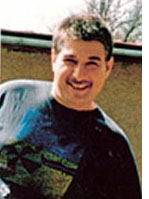 He spoke also of Steve being a budding playwright in college—writing one play in which a son of his age complained about a mother of Marilyn’s age that she always, but always, made beef brisket for Sunday dinner. That interest led to Steve moving to New York, where some of his plays were produced “off, off-Broadway,” meaning in Greenwich Village. From such plays one doesn’t make a living, so Steve worked at a good job with Chase Manhattan Bank. He spoke also of Steve being a budding playwright in college—writing one play in which a son of his age complained about a mother of Marilyn’s age that she always, but always, made beef brisket for Sunday dinner. That interest led to Steve moving to New York, where some of his plays were produced “off, off-Broadway,” meaning in Greenwich Village. From such plays one doesn’t make a living, so Steve worked at a good job with Chase Manhattan Bank.
Steve decided to move to Poland after having a discussion with “a Polish friend, also in the arts, who worked as a cameraman for the Hollywood studios whenever they needed to photograph a scene in New York City,” Gerry said. The man’s parents “were active in Polish TV and he told Steve that if he went
Steve Greber, z"l
there, they would get him actively involved in writing in this area. ”
That wasn’t the way things worked out, however, so “in order to survive he joined a school and taught English,” Gerry said. “He was very proficient in languages and had no trouble learning Polish. His entrepreneurial personality led him to eventually open his own school. He made contact with Oxford University, obtained some very new and interesting teaching programs, and this led him to franchising out schools for English. There are now six schools in six different cities in Poland under the banner of “English School of Communicating Skills-ESCS”
Gerry recalled that one year when he and Marilyn visited Steve and his family in Nowy Wisnicz they conducted the first seder there in the 64 years since the Holocaust. Gerry’s story about the occasion is in the archives of San Diego Jewish World.
Rabbi Kornberg drew upon two metaphors in discussing how difficult it is for parents to outlive their children, instead of the other way around. One was contained in a poem of anonymous authorship in which the poet discussed a large sailboat going from port to sea, and seemingly becoming smaller and smaller until finally it slipped over the horizon. But, noted the poet, the sailboat hadn’t changed; it was the same size. The change was in the perceptions of the viewer as the boat proceeded to its destination.
The second was the story of a wonderful piece of music known as Shubert’s “Unfinished Symphony” which was discovered after the composer’s death. There were only two, rather than four movements. It was the quality of the music, rather than its length, that made the “Unfinished Symphony” among the most cherished of Shubert’s works.

FIRST PERSON
'There are angels out there' at Ezer Mizion
By Irv Hackel
BROOKLYN, N.Y—Several years ago, on a trip to Israel to visit my daughter, I was confronted with a world that till now I thought to exist only in the land of nightmares. I was there when bombs went off in Rishon Lezion. Ezer Mizion ambulances were the first on the scene. I heard how volunteers helped families who came rushing to look for loved ones and how they took the families to the correct hospitals after locating the whereabouts of each victim, a mind-boggling task. I watched social workers and psychologists working around the clock in the emergency rooms on a volunteer basis. I looked on in awe at these professionals assisting families in handling the initial effects of trauma, or worse, and accompanying them, with deep respect, dedication and love, to the morgue to identify the victims who did not survive.
I was filled with questions for my new friends at Ezer Mizion: “What was the cost? Do you get reimbursed? Does insurance cover any of the services?
The answers were staggering: “No reimbursements from the people that they assisted. Payment? We don’t ask to be paid for helping people.” These men and women, tired, sleep deprived from working all night, were at their desks again at daybreak, handling call after tragic call with professional expertise, with comforting words, with love for their fellow Jews.
On my last day in Israel, I met an incredible 18-year-old young woman. She was answering the phones in the Jerusalem branch. Her arms and hands were bandaged and I asked her what happened. “A few months ago,” she answered, “ I went out an a Saturday night. A homicide bomber blew himself up in a middle of downtown. I started running. As an Ezer Mizion volunteer, I tried to reach the bomb site to help. A policeman hollered not to go that way but to take another route. The other route let me into a second explosion. I was on fire, “she continued. “ I was riddled with nails and screws. My blistering hands were useless and it took the quick thinking of a nearby stranger to get rid of my burning clothes and get into an ambulance.” The injuries were severe but four months later, she was back at her desk. “I felt bad that I wasn’t able to help then at the bombing but I came back as soon as the doctor allowed. There’s so much to do.”
I visited Oranit, Ezer Mizion’s Guest Home for Children with Cancer. I saw parents relax a bit from the nightmare that has encompassed their lives, enjoying programs especially set up for them by Ezer Mizion’s compassionate staff. I saw children, who hadn’t smiled for days, giggling while holding a bunny rabbit at Ezer Mizion’s clinically safe petting zoo. And I visited the International Jewish Bone Marrow Registry where the staff deals daily with life and death. I was shown the Terror Orphan Division which provides mentoring for children who have lost a parent in a terror action and VOCA which provides state of the art equipment for the voice impaired, enabling them to communicate with family and friends. The Food Distribution Division was filled with volunteers packing meals for the elderly, the disabled and families of cancer patients. “Ezer Mizion is like a Mommy,” I commented. Jews seem to go to them for all their problems.
I was hooked. I didn’t care if my golf game would suffer. I wanted to work full time to do everything in my power to help this great organization. I made a promise to myself, a promise to G-d. I accepted the job of Executive Director. Job description: to care. Hours: always. I would attend a friend’s wedding and speak to everyone about Ezer Mizion. I went on vacation and button-holed every fellow vacationer. “People have to know,” I thought. “While we’re sitting in front of the TV, there are angels out there, doing superhuman work.”
And so bit by bit, town by town, Ezer Mizion became known throughout the United States as the organization who fully lives up to its motto: Their Challenges…Our Mission.
|
A wonderfully cohesive program brilliantly executed ... Zina Schiff is a first rate violinist fully up to the music's tremendous technical challenges ... who can get inside the soul of Bloch's extravagantly expressive music |
|
Stingy? Friendly to strangers? You may be genetically predisposed to such behaviors
By Peter Garas
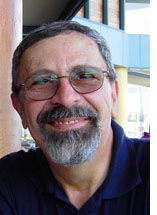 CANBERRA, Australia—It's official, research at the Hebrew University seems to reveal that a lack of a variant of a gene called AVPR1a - otherwise known as arginine vasopressin receptor 1A, may be responsible for all those people who fail the test of Tzadakah when confronted by a blue and white collection tin from the UIA or any other variant of the "let's give til it hurts" message. CANBERRA, Australia—It's official, research at the Hebrew University seems to reveal that a lack of a variant of a gene called AVPR1a - otherwise known as arginine vasopressin receptor 1A, may be responsible for all those people who fail the test of Tzadakah when confronted by a blue and white collection tin from the UIA or any other variant of the "let's give til it hurts" message.
In the study, 203 online participants, who had all provided DNA samples, were given a choice of keeping an equivalent of $12, or giving away all or part of the sum to another player.
The researchers examined the participants' reactions and found that those who had a variant of a gene called AVPR1a on average gave away nearly 50 per cent more money than those without the variant.
The study's results were published recently in the journal Genes, Brain and Behaviour.
So NOW you actually may be able to respond to the criticism that you are either too generous or too stingy with:-
"I can't help it - it's in my genes!"
What's more, this is not the first time that variations to this gene have been cited as being responsible for some other interesting emotional behaviors
Did you ever wonder why your wife and daughter seem to respond so warmly to the new guy on the block that irks you so much and you harbour suspicions about?
Yep, it's likely to be AVPR1a again!
As reported in the Neurobiology of Love
Thompson et al., found that AVP increases the perception of friendliness in females exposed to unfamiliar faces ('tend and befriend' a stranger), while lowering the perception of friendliness in males (the more typical aggressive response to a stranger). The fascinating modulatory effects of AVP on social affiliation are now better understood in light of the work of Allaman-Exertier and colleagues who explored the relationship between the AVPR1A receptors and the neural circuitry that underlie complex behaviors and feelings of amour.
So now you know. Before you kvetch about generosity or stinginess, before you express your emotions - be they on the friendly or aggressive side - first check your genes!

 Chanukah at Hillel: a meshuganah auction Chanukah at Hillel: a meshuganah auction
By Donald H. Harrison
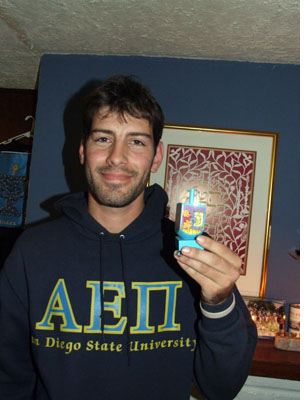 SAN DIEGO—One might get the impression that a cast-off item selling for $4 doesn't raise very much money for charity, but actually by means of a "meshuganah auction" it would generate $34 in contributions. With more than a dozen "cheap items" so auctioned by students at the Hillel at San Diego State University, the aggregate sum from the auction will purchase some Chanukah presents for two needy seniors whose names are known only to Jewish Family Service. SAN DIEGO—One might get the impression that a cast-off item selling for $4 doesn't raise very much money for charity, but actually by means of a "meshuganah auction" it would generate $34 in contributions. With more than a dozen "cheap items" so auctioned by students at the Hillel at San Diego State University, the aggregate sum from the auction will purchase some Chanukah presents for two needy seniors whose names are known only to Jewish Family Service.
The meshugunah (crazy) auction worked this way: Students brought in second-hand items of various kinds, such as videos they had seen again and again, bubbles for blowing, coffee mugs, even a worn dreidel bearing images of Winnie the Pooh characters. Opening bid for any of these items was 25 cents, which was tossed into a tzedakah hat in the middle of a circle. The next bid had to be 50 cents, which also was tossed into the hat. The person who bid the initial 25 cents didn't get the money back, so now there was 75 cents already raised. The next bid
was 75 cents, bringing theaggregate to $1.50. The fourth bid was $1, upping the money in the pot to $2.50 and so on.
Hillel Director Jackie Tolley said that all she knew about the two women who would split the proceeds of the fundraising project was that they were elderly, poor, and in need of such items as housecoats, and gift cards for shopping at places like Target or Walmart.
Giving to people you don't know is one of the highest levels of charity, according to a scale once developed by the 12th century philosopher and medical doctor Maimonides. Raising the contribution even higher on the altruism scale is the fact that the recipients won't know the names of the donors. Therefore the act of tzedakah neither aggrandized the donor's reputation, nor humiliated the recipient.
Bidding was spirited with at least one student shaking her fist at other students in a parody of anger as they won away from her used items that might otherwise have been thrown out.
Besides helping the needy seniors, the Chanukah celebration also helped some of the students who were away from home for the holidays for possibly the first time in their lives.
"Hillel here has become my home away from home; I am on the board here as well" said Alexi Biener, a sophomore who was one of the students away for the first time. "I like to be around family and friends, and I have my friends here."
What if there were no Hillel at San Diego State?
"I don't even want to think about that," she replied. "It would be me and my roommate lighting a menorah in our little tiny apartment all by our lonesome selves."
Corey Sandler, a sophomore from Orange County, said if he were home for Chanukah, he would be enjoying food preparedby his grandmother, whom he described as the "specialty latke maker."
Michelle Golan from Dallas, Texas, said back home all the cousins get together and have a Chanukah party. "We have 10-15 menorahs set up for me and all my cousins lighting candles, so it is pretty special... We turn off the lights and we light all the candles. That is nice."
Before I could move on to other student interviews, the lights at Hillel House likewise were turned off and students identified as Amir, Trevor and Suzanne lit three Chanukiyot on the mantel. Nearby a table was well provisioned with bowls of applesauce and piles of latkes--perhaps, just perhaps, almost as good as the kind Corey's grandma makes.
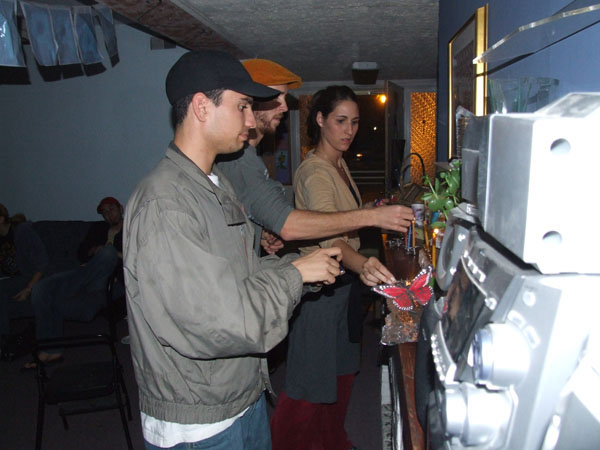


SAN DIEGO JEWISH WORLD THE WEEK IN REVIEW
WEDNESDAY, DECEMBER 5
Garry Fabian in Melbourne, Australia:Two Jews and new friends in Parliament... Church group slammed for trip 'bias' ... Toben pulls apology, denial remains on web site ... Community welcomes Smith as new foreign minister ...
Donald H. Harrison in San Diego: Beth Am packed with Olshansky fans
Sheila Orysiek in San Diego: The differences and similarities between a dreidel and a pirouette
plus these feature photos...
Hannukiyot at Beth Am
Mideast delicacy on a license plate
TUESDAY, DECEMBER 4
Shoshana Bryen in Washington, D.C.: Stephen Hadley's appalling speech
Dov Burt Levy in Salem, Massachusetts: Nu, Mr. Billionaire, let's talk about Israel
J. Zel Lurie in Delray Beach, Florida: At 94 today, will I see peace in my lifetime?
Alan Rusonik in San Diego: A Challenge for Jewish School teachers: is your classroom a 'big tent' welcoming all?
MONDAY, DECEMBER 3
Cynthia Citron in Los Angeles: Zypora's love affair with the Yiddish Theatre
Rabbi Matthew Earne in San Diego: Slow down! Chanukah is not an IM
Donald H. Harrison in Poway, California: Some December advice for intermarried
Joe Naiman in San Diego: Care to compete in JCC Maccabi games?
Sheila Orysiek in San Diego: Connecting seemingly disparate dots
plus:
Photo essay: A Chanukah happening at LFJCC
SUNDAY, DECEMBER 2
Donald H. Harrison in San Diego, California: Celebrity watching at the White House
Rabbi Baruch Lederman in San Diego: A Chanukah miracle in post-war Poland.
Rabbi Leonard Rosenthal in San Diego: Vayeishev teaches thous shalt not have favorites among thy children
Lynne Thrope in San Diego: Chef Arturo Kassel to convert La Jolla Fresh to Whisnladle early next year
FRIDAY-SATURDAY, NOVEMBER 30-DECEMBER 1
Peggy Han in San Diego: Participating in a 60-mile long mitzvah
Donald H. Harrison in La Jolla, California: Young, wealthiest donors changing the Jewish style of philanthropy
< BACK TO TOP
|
|

